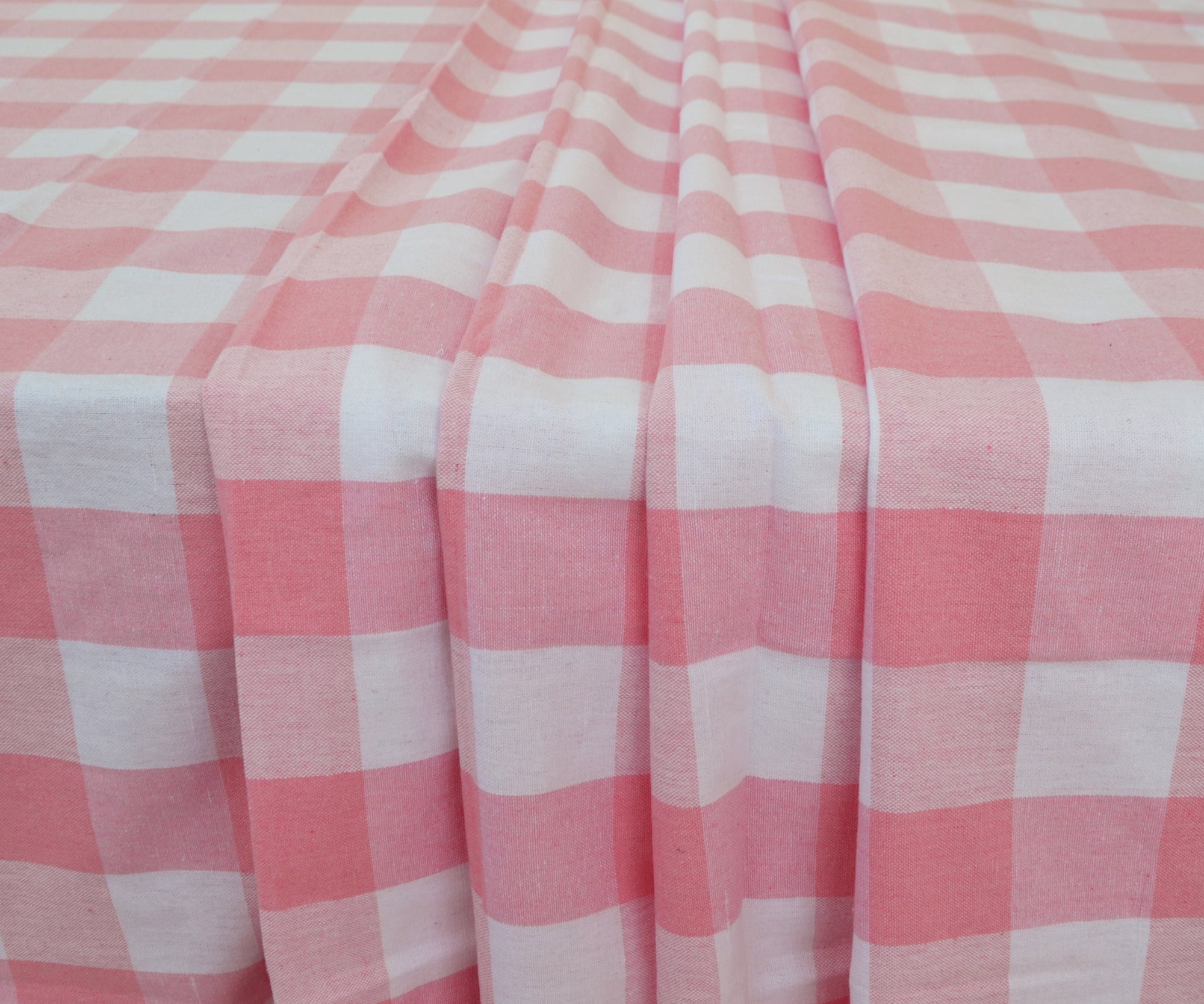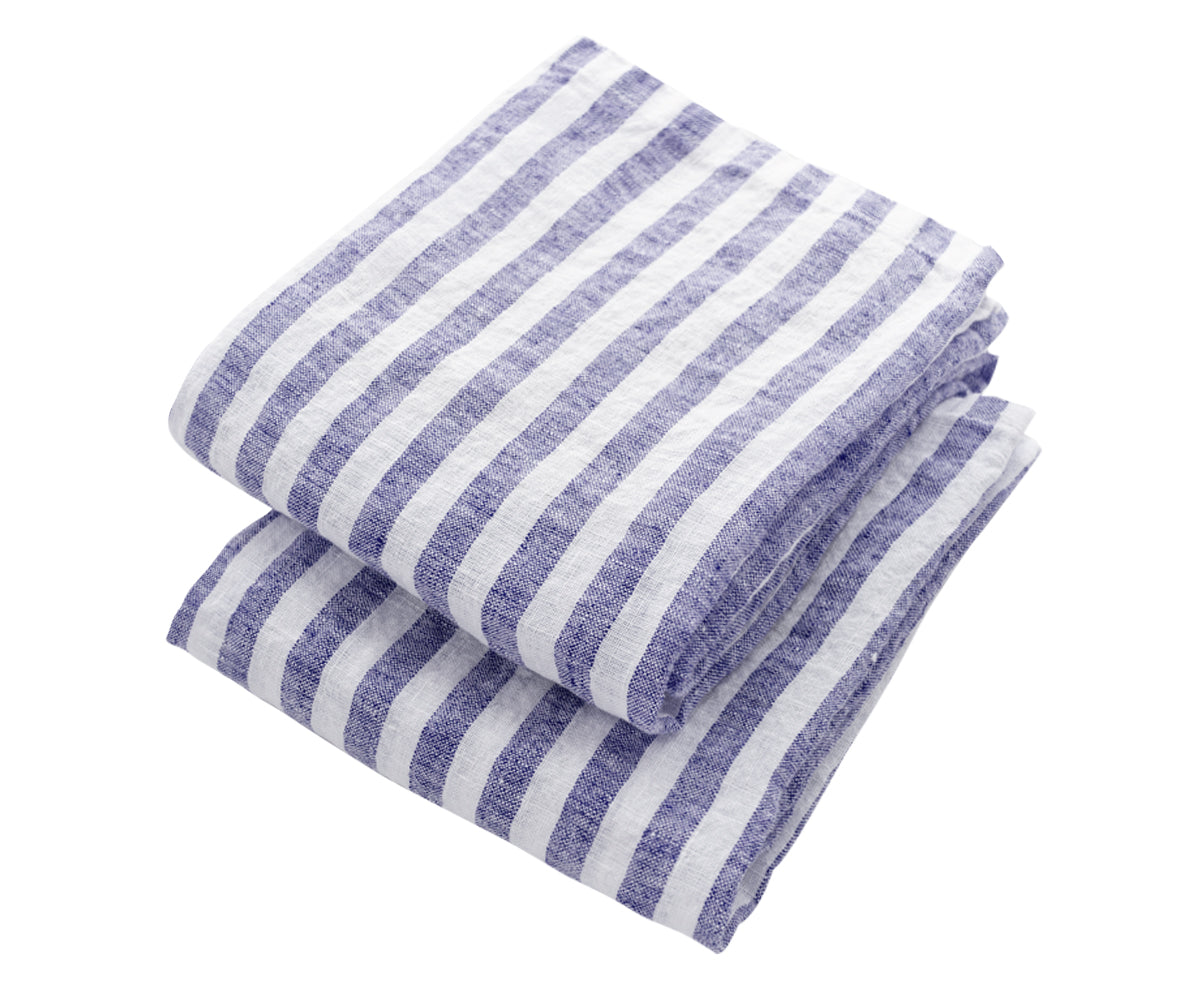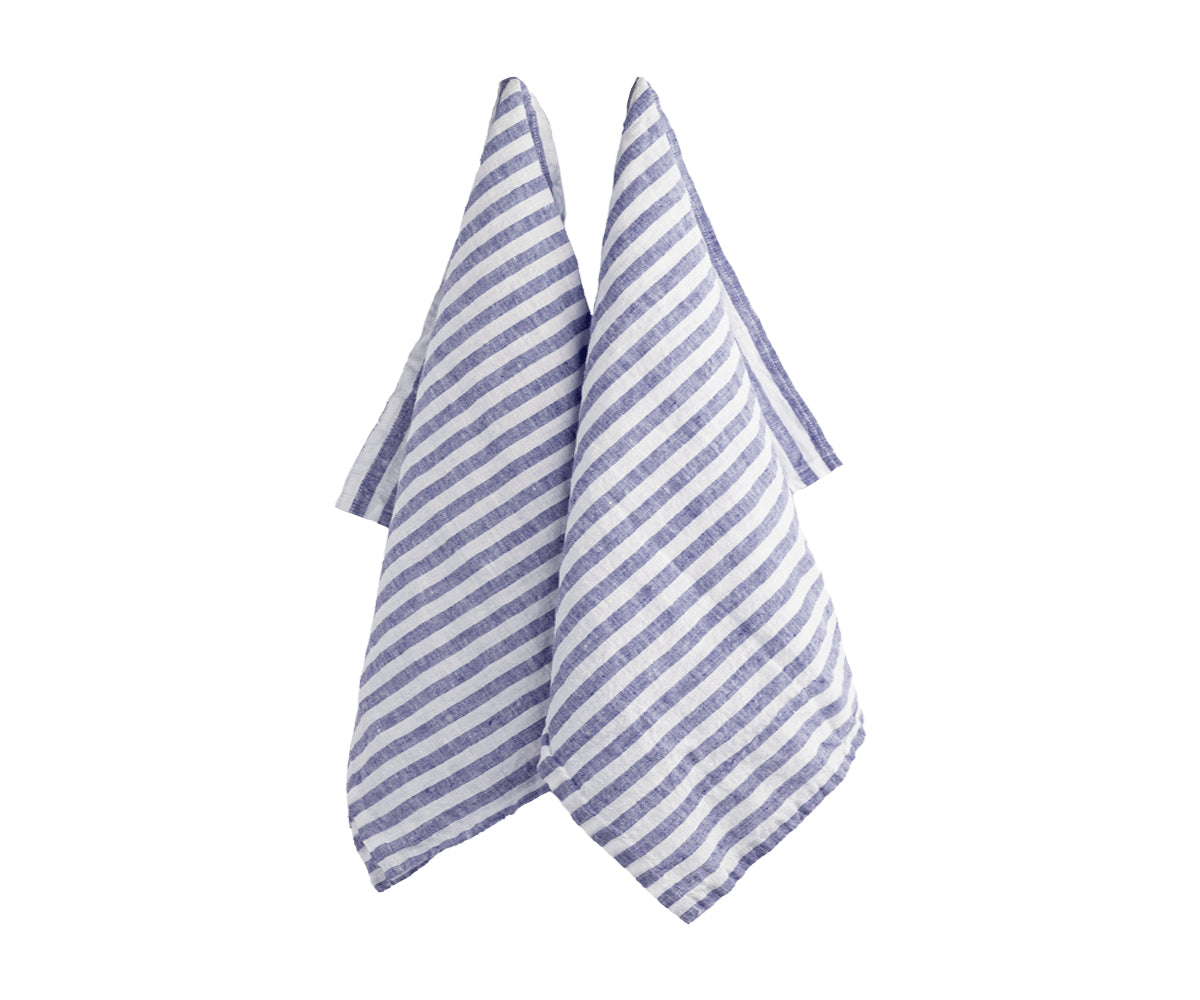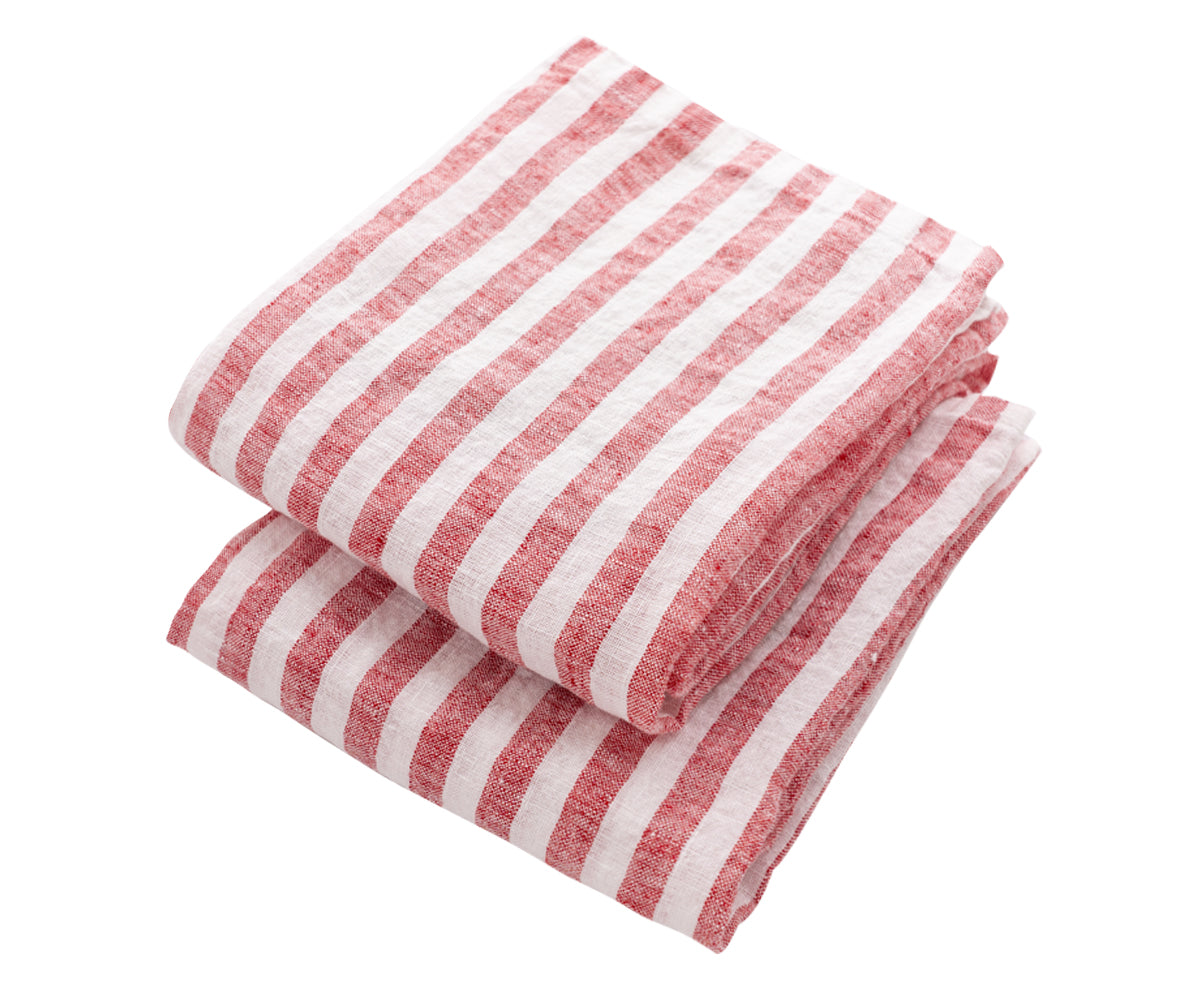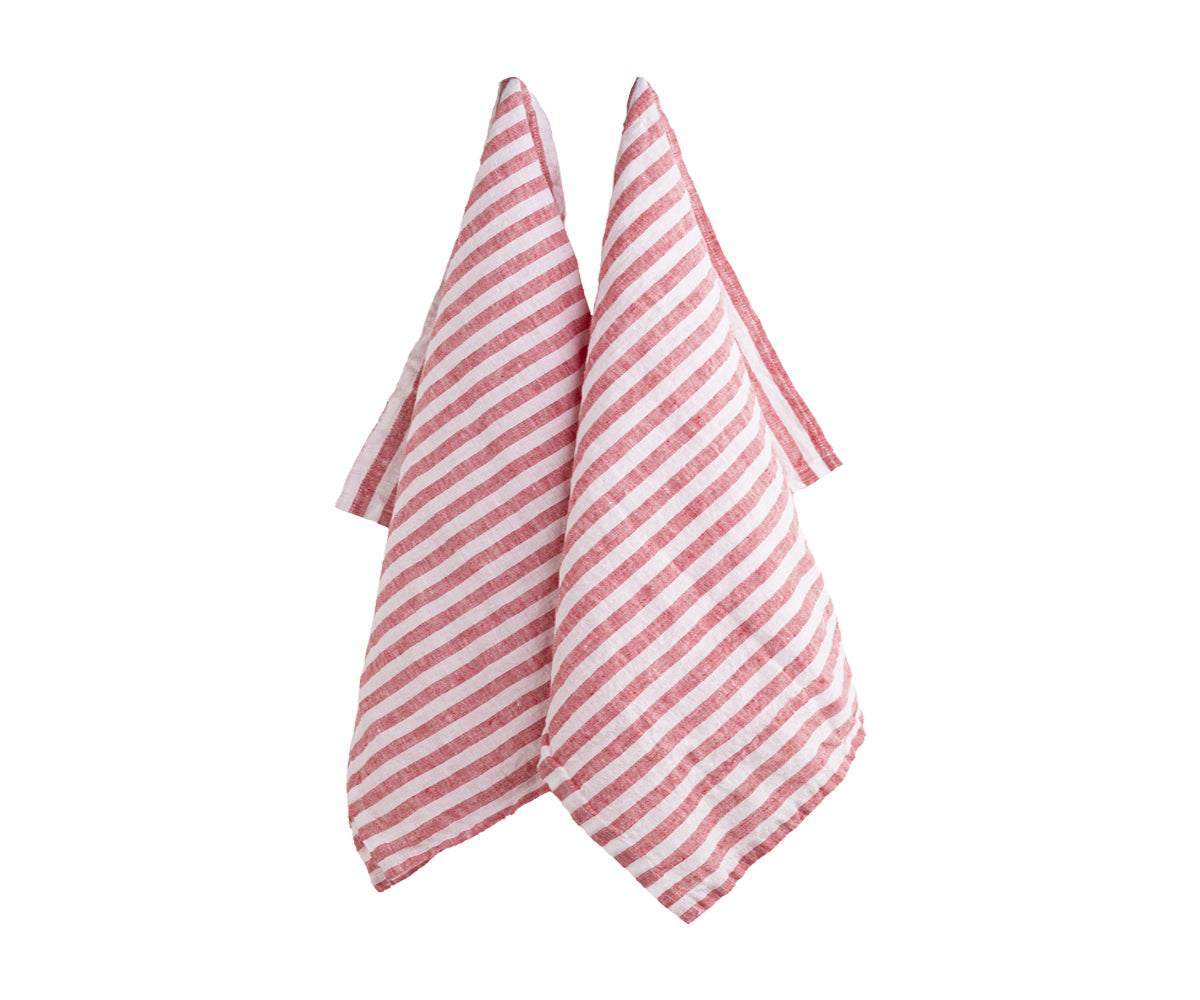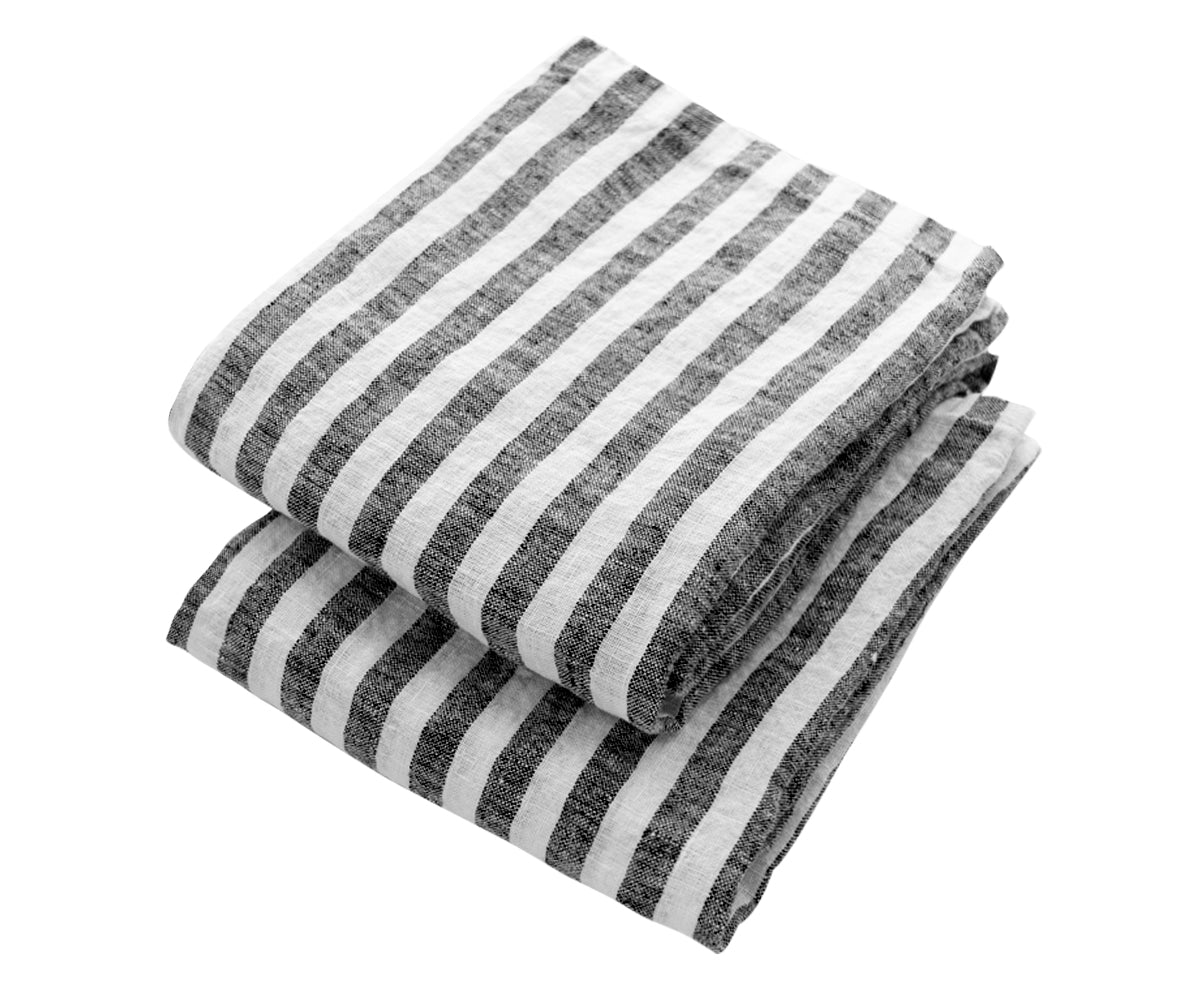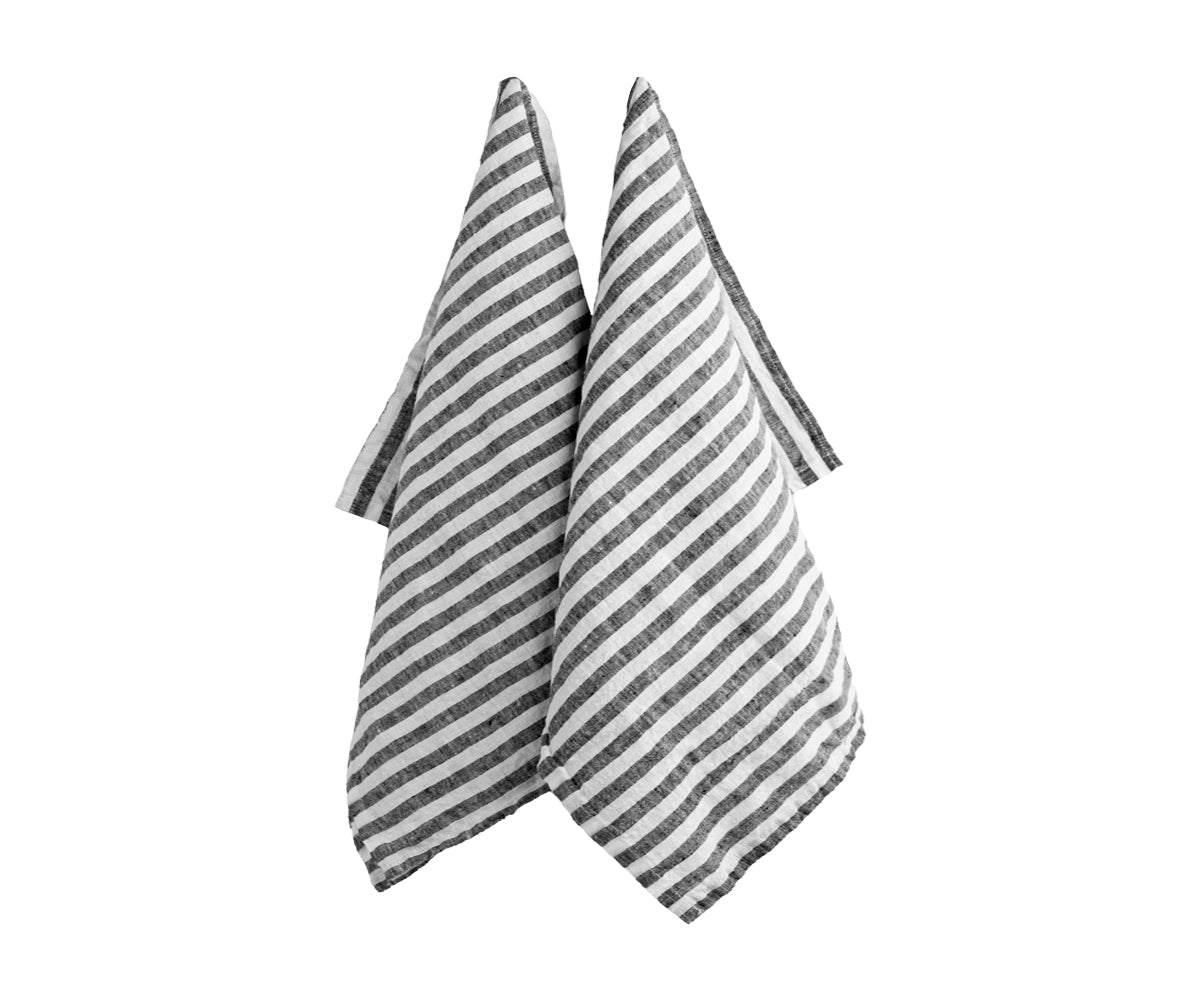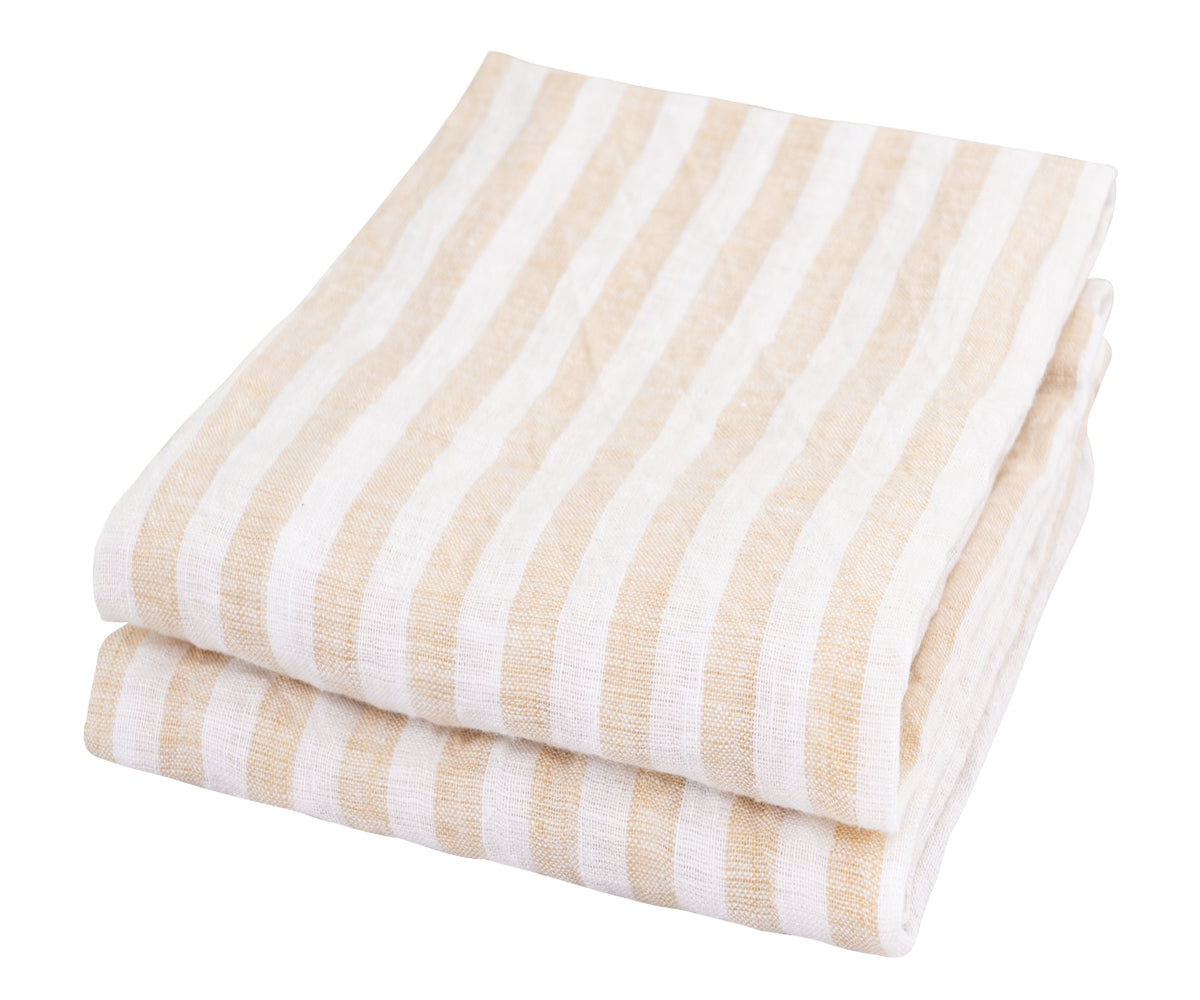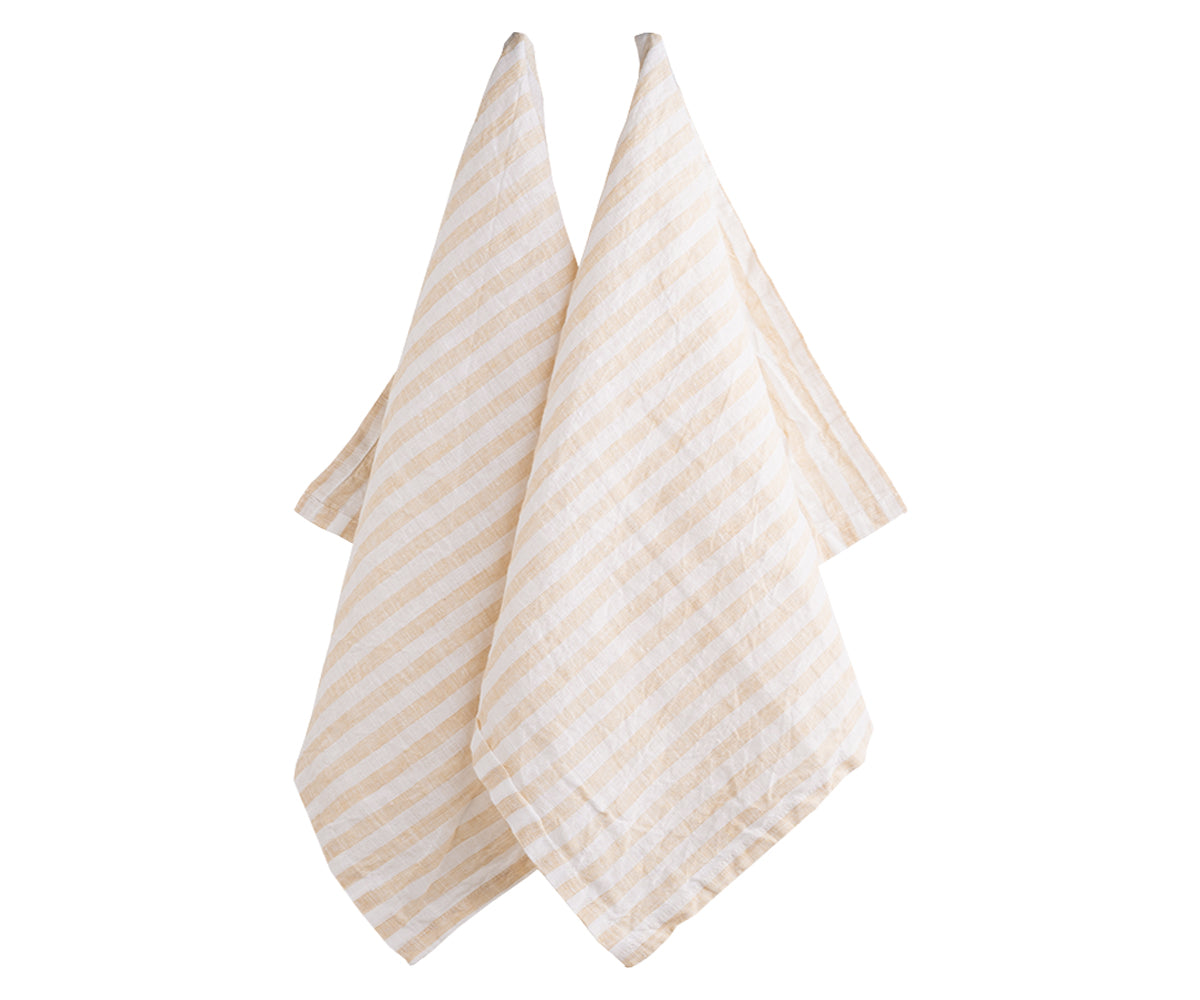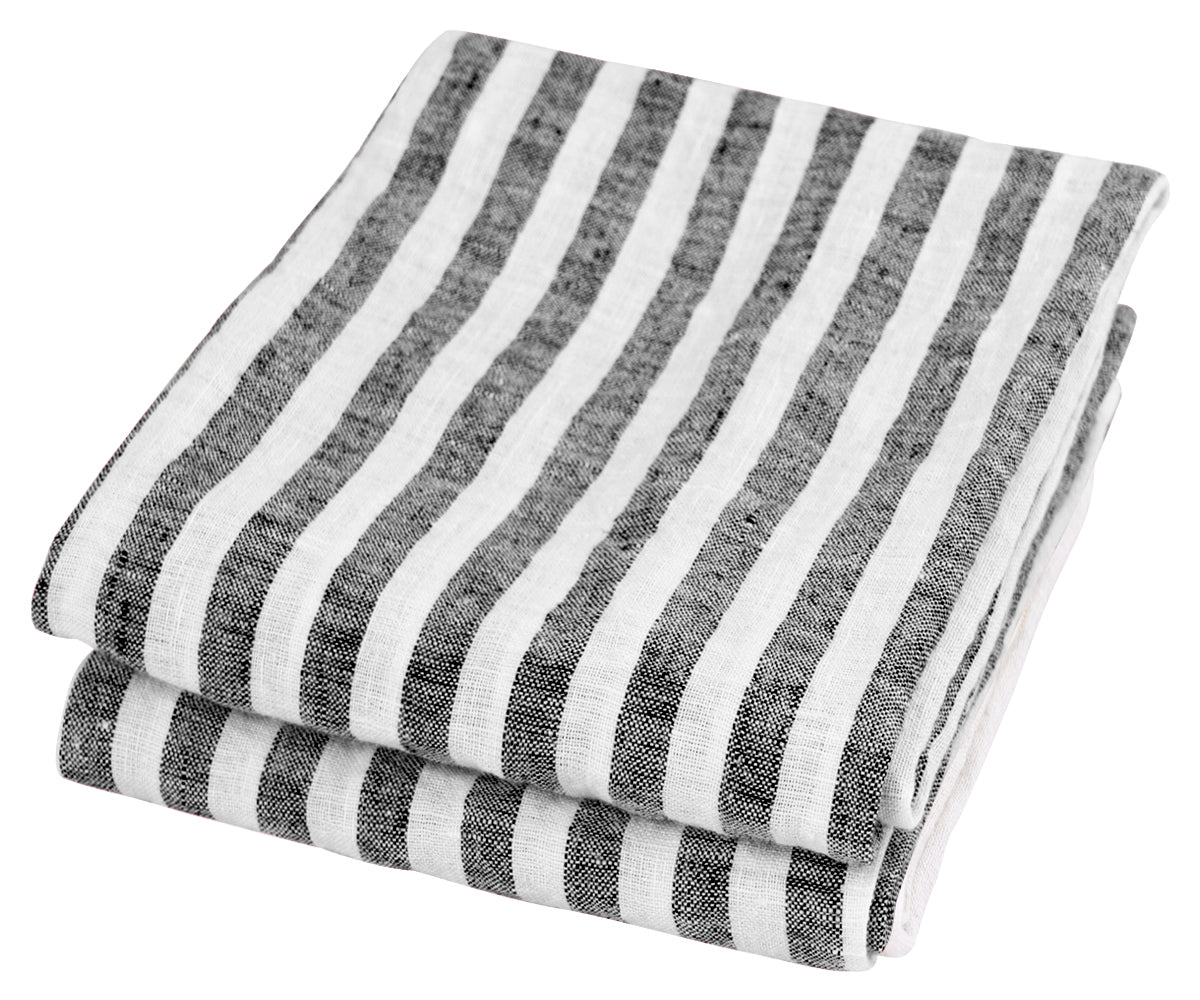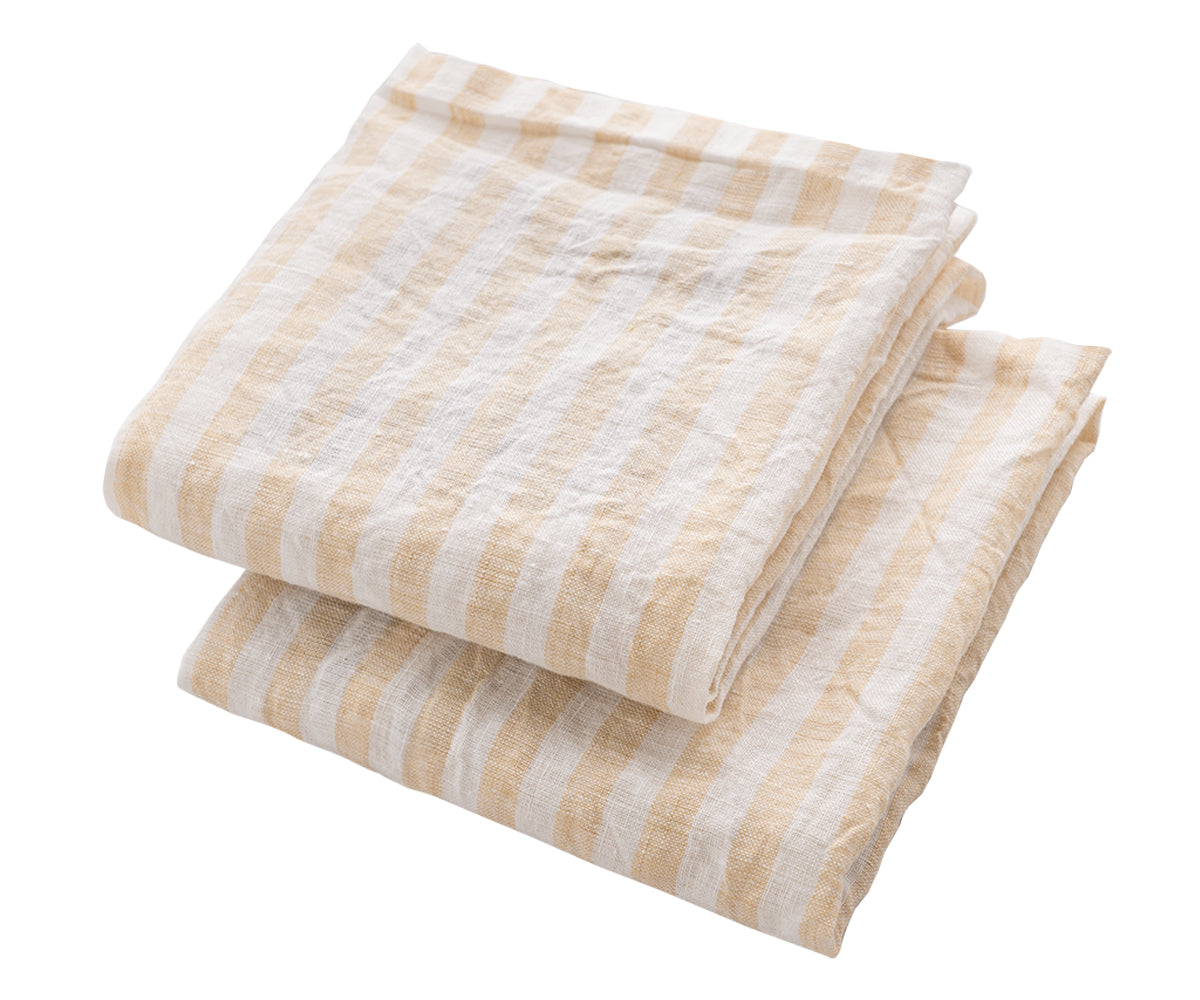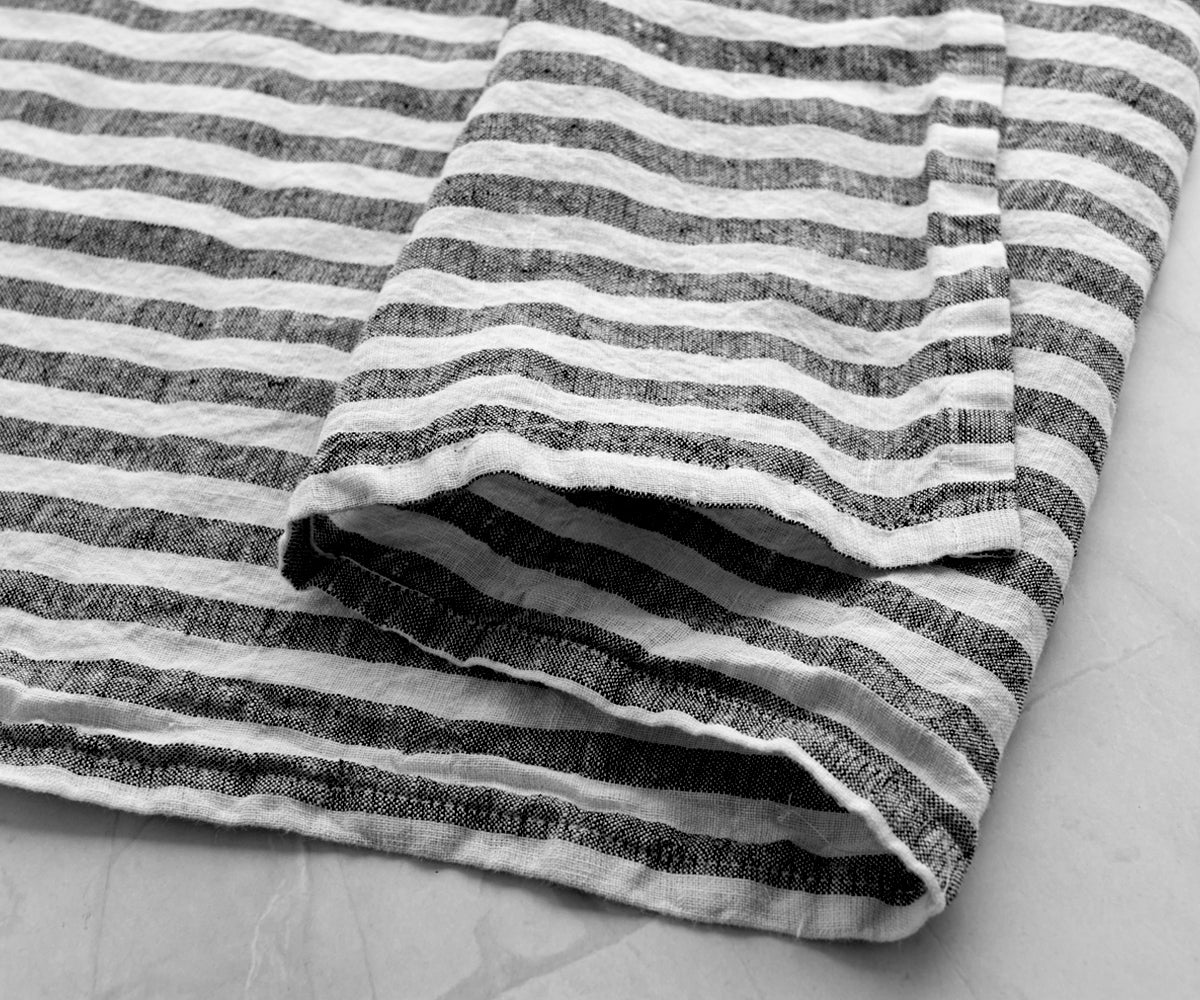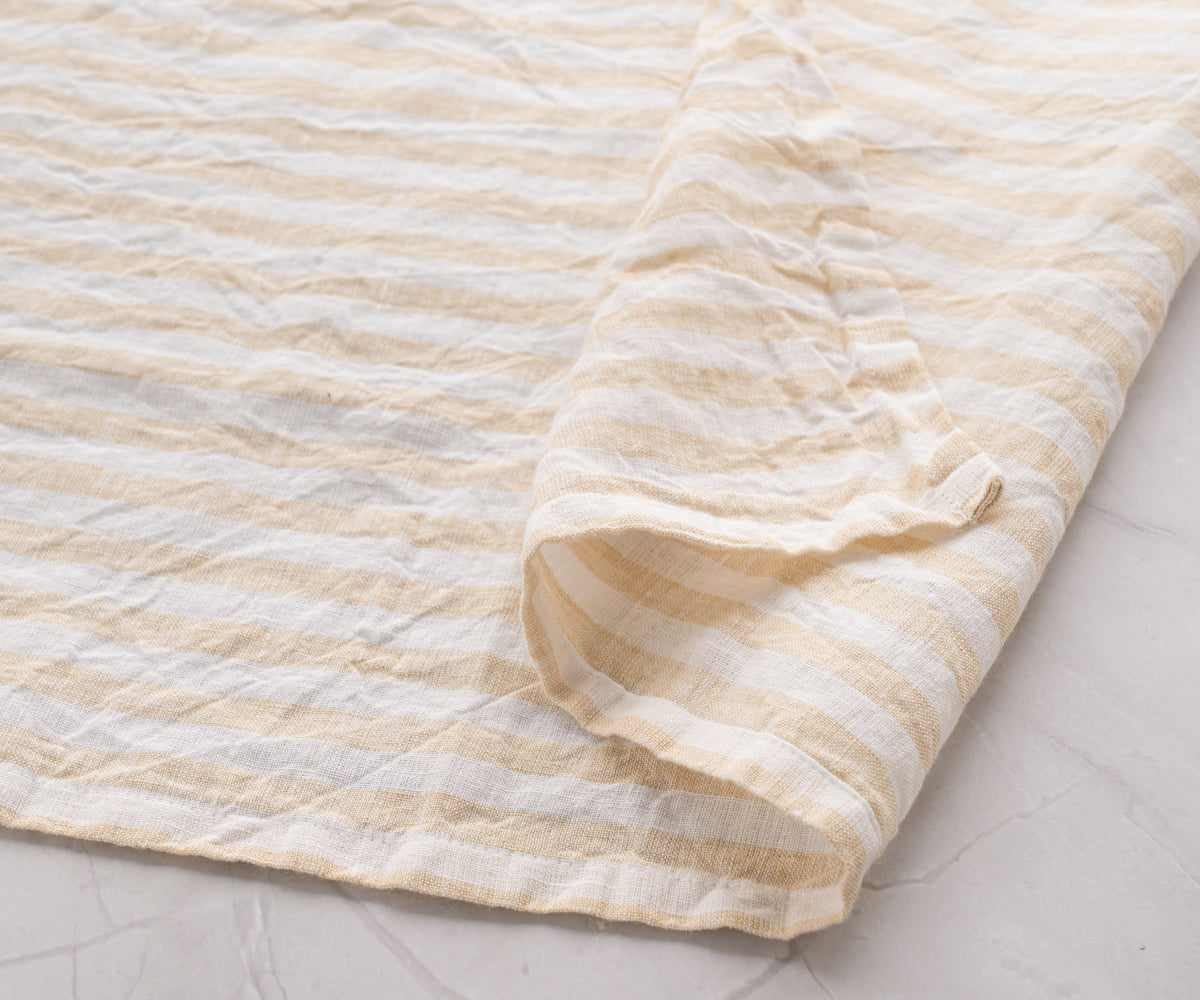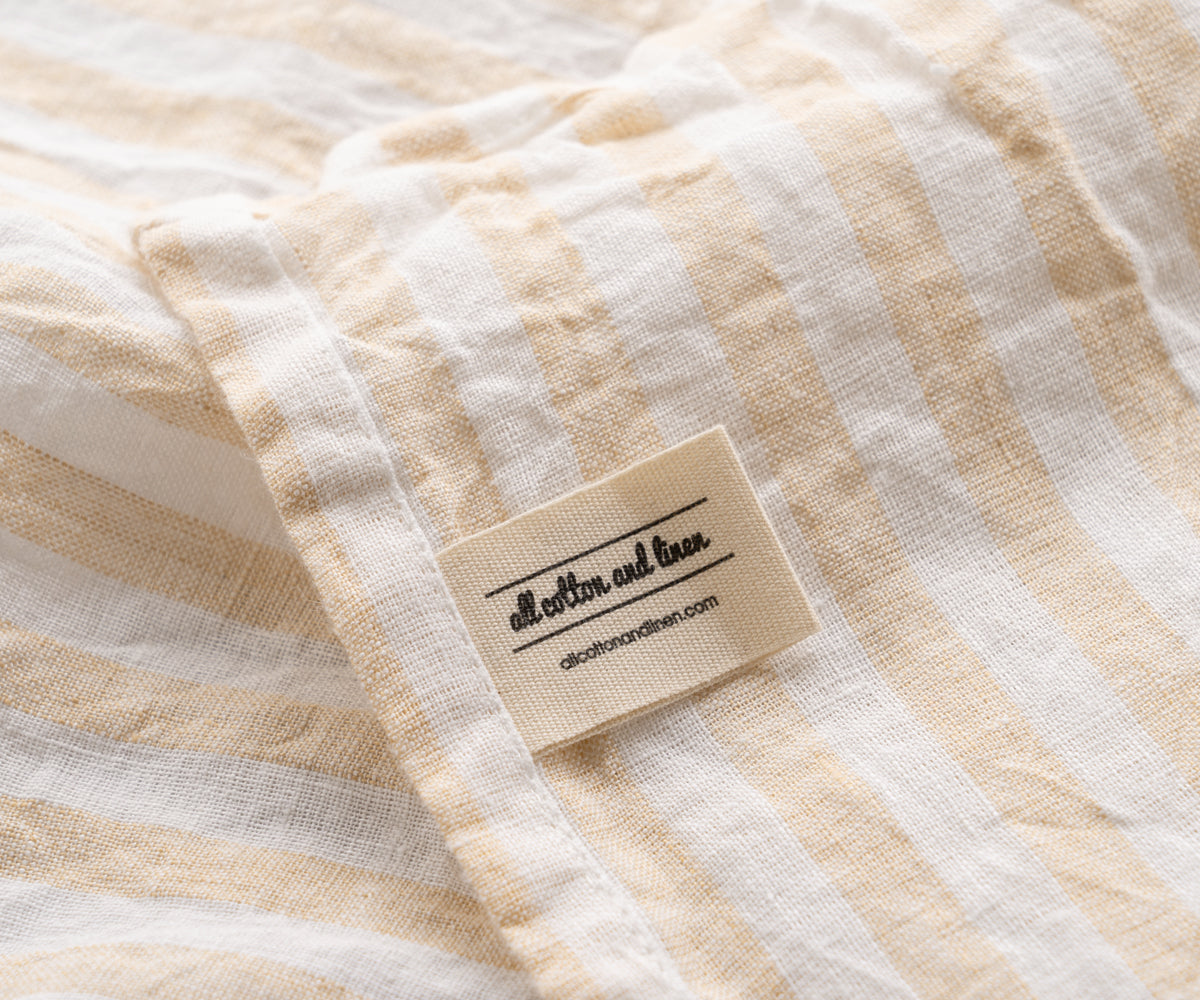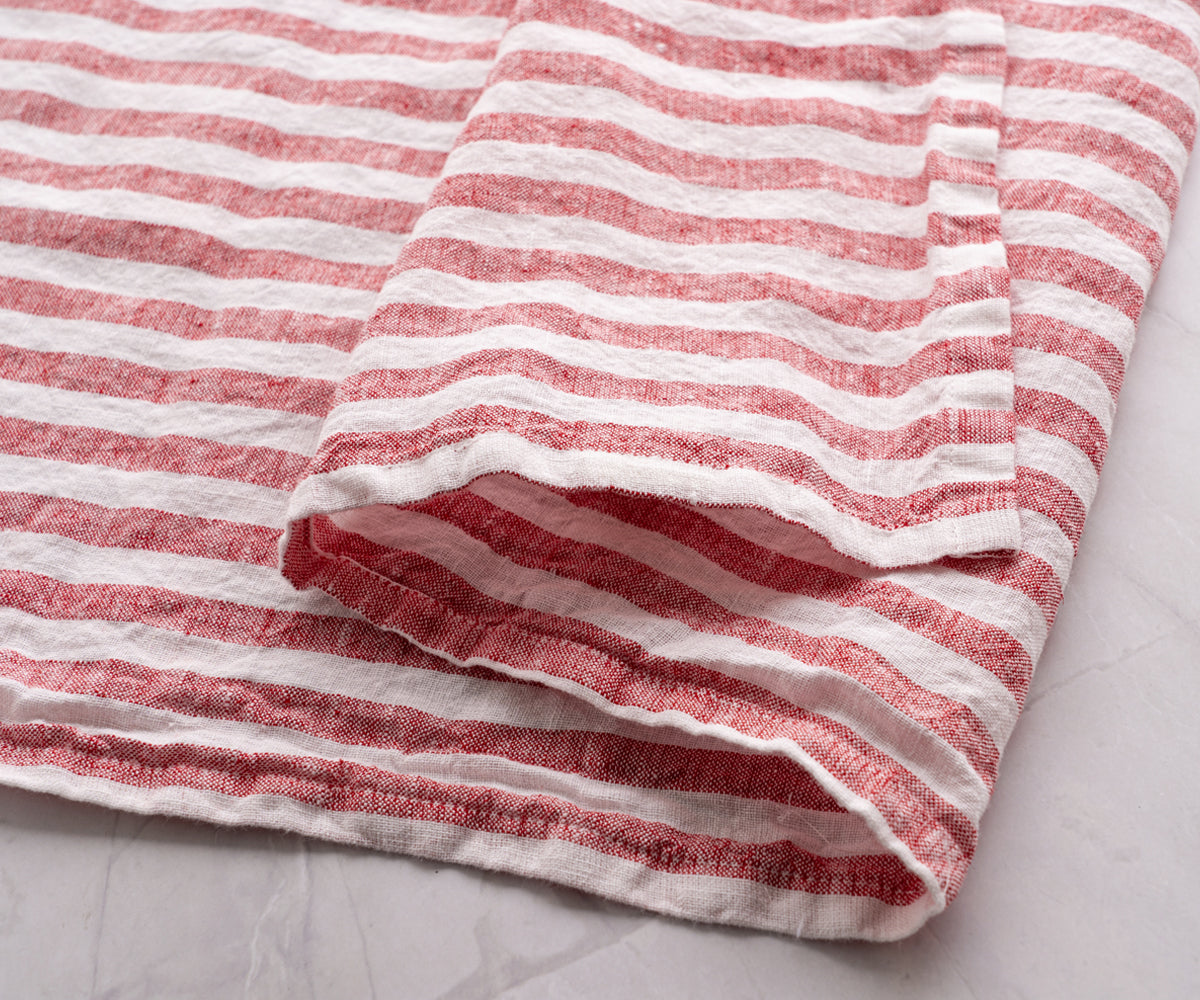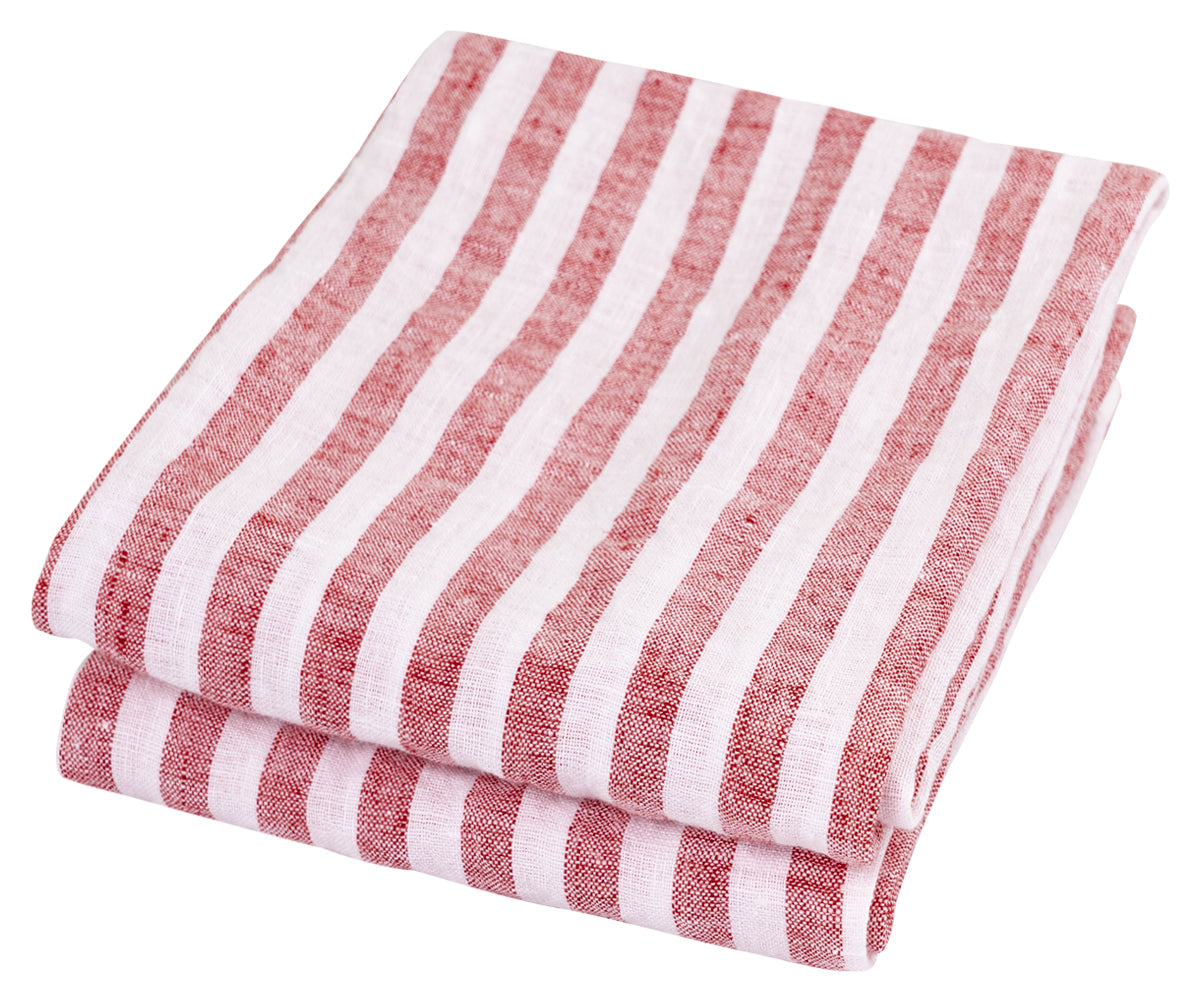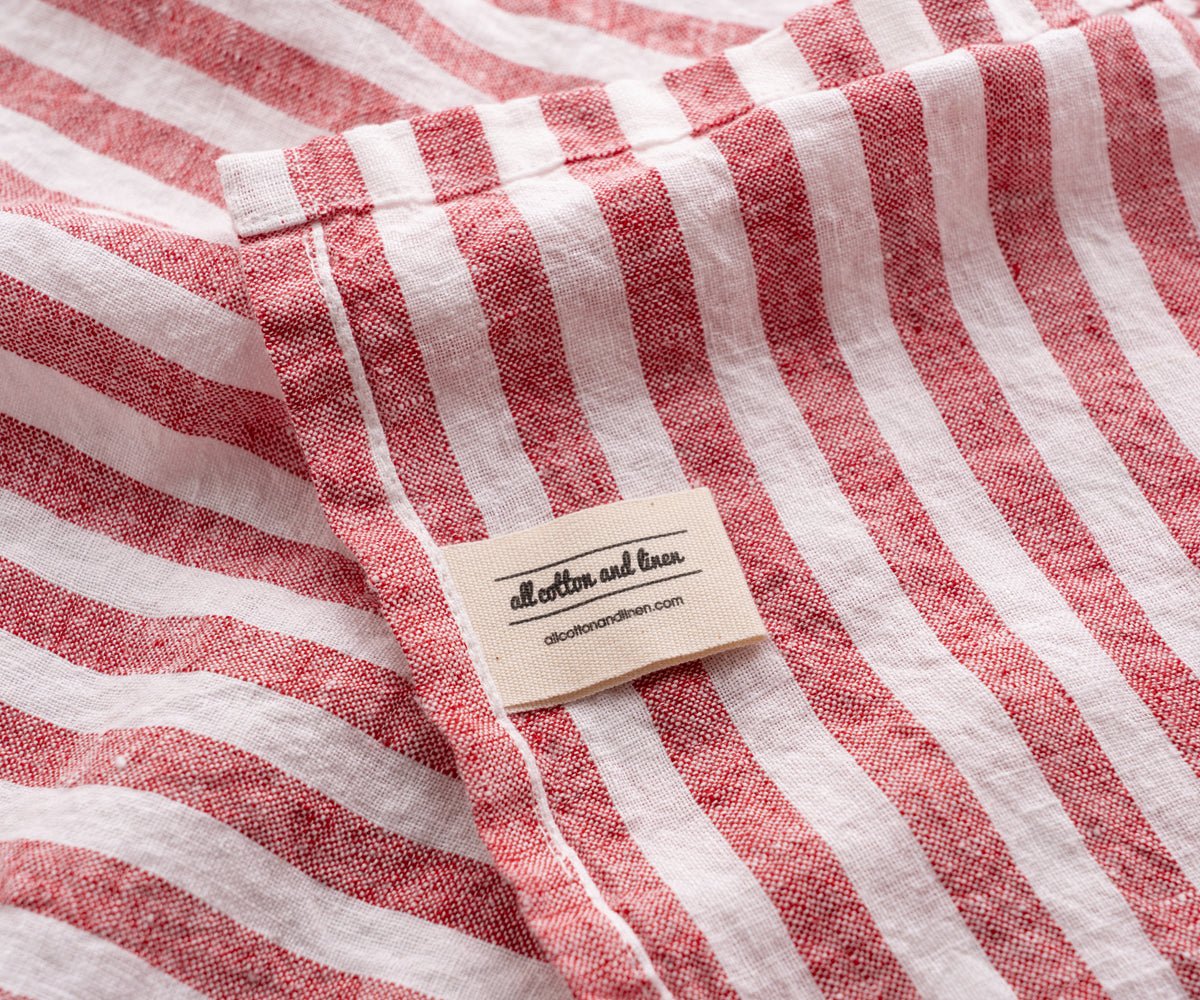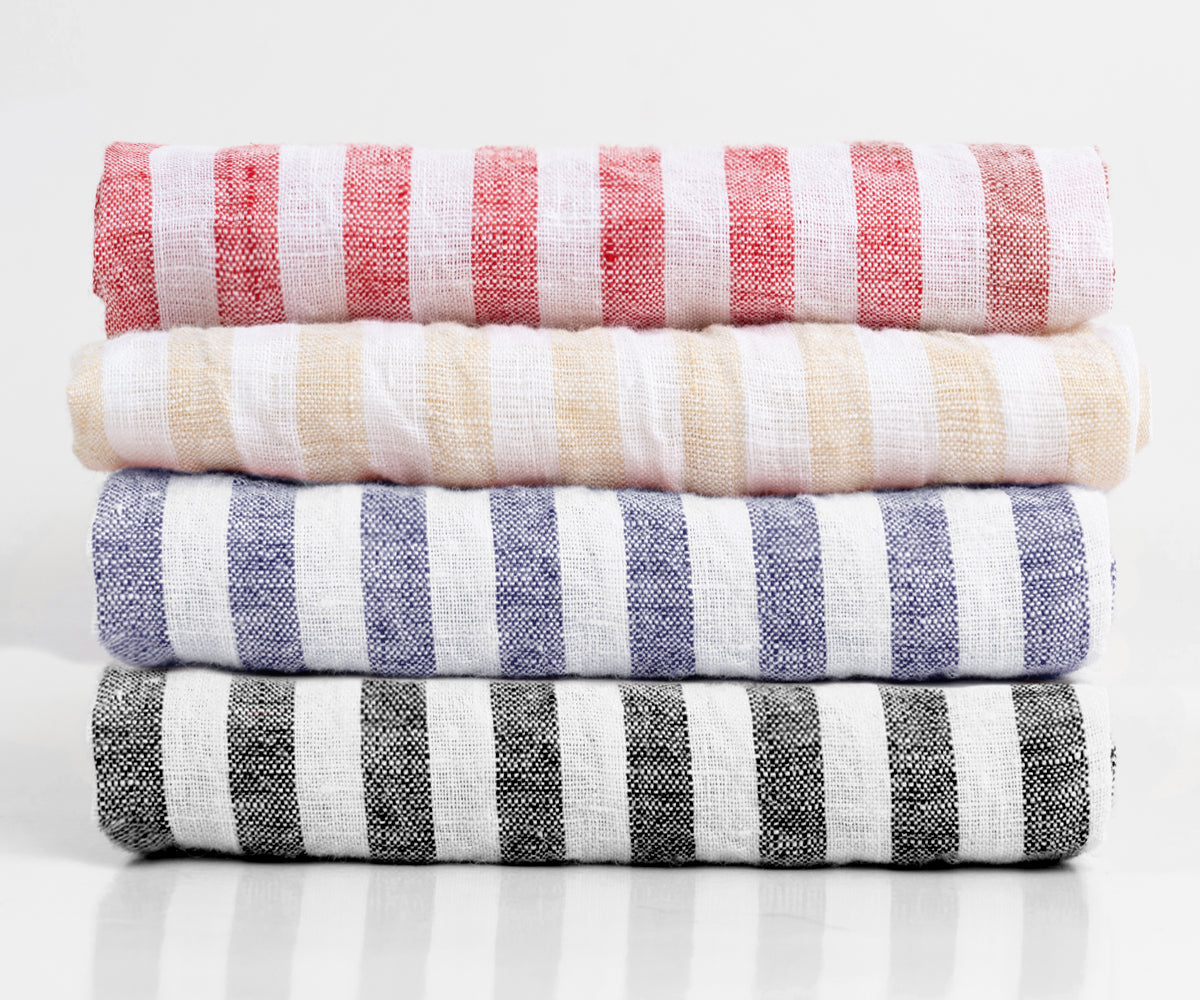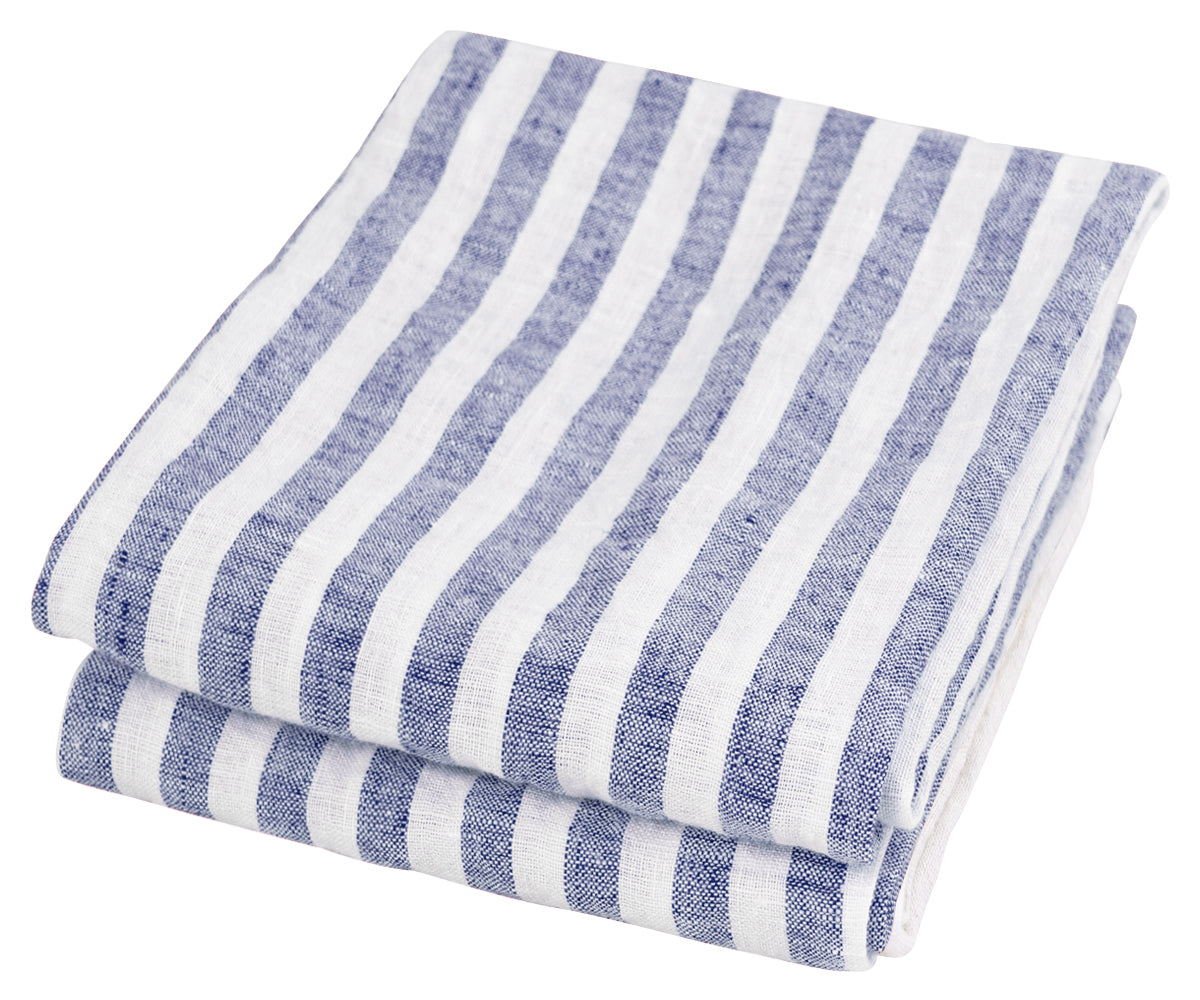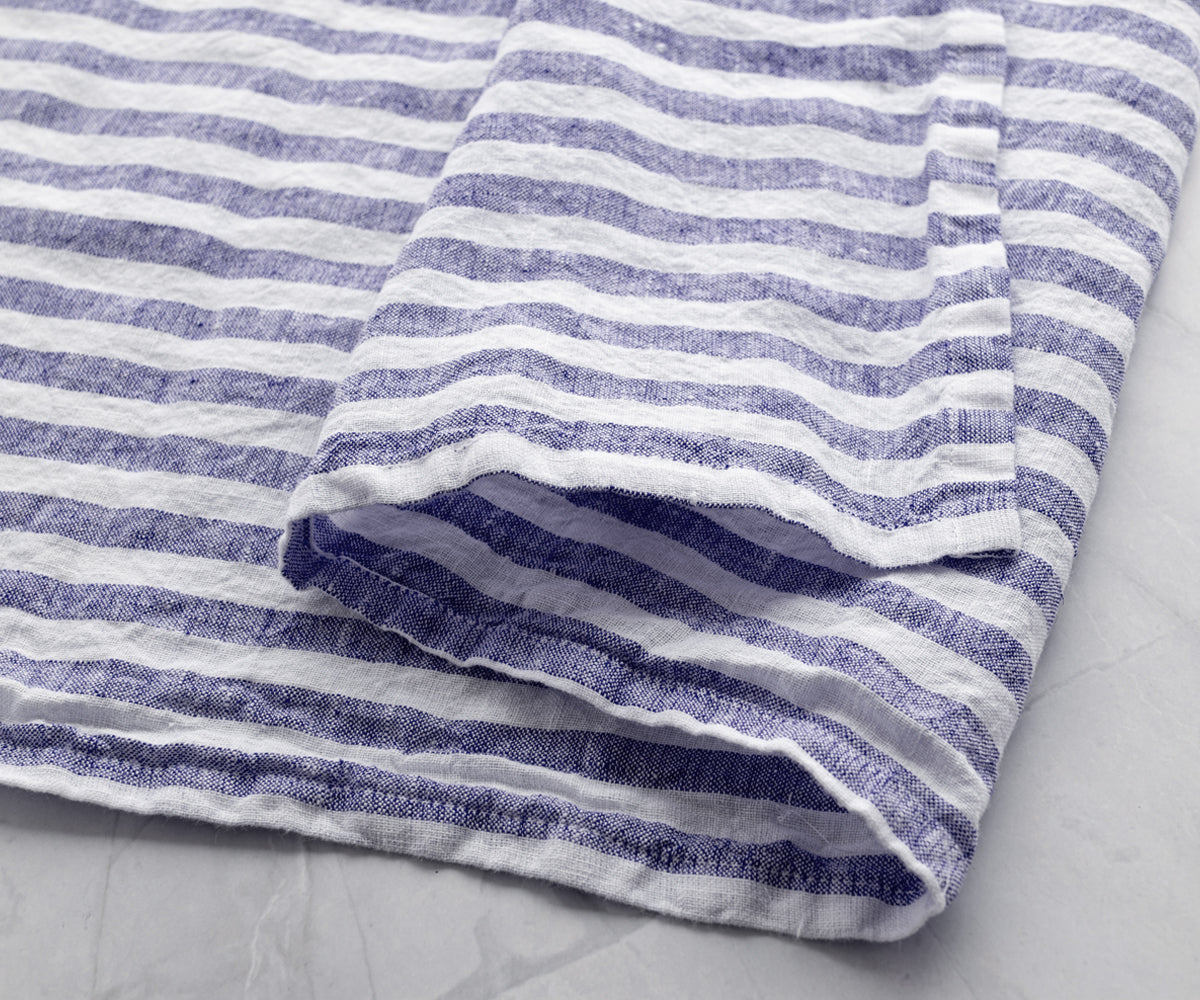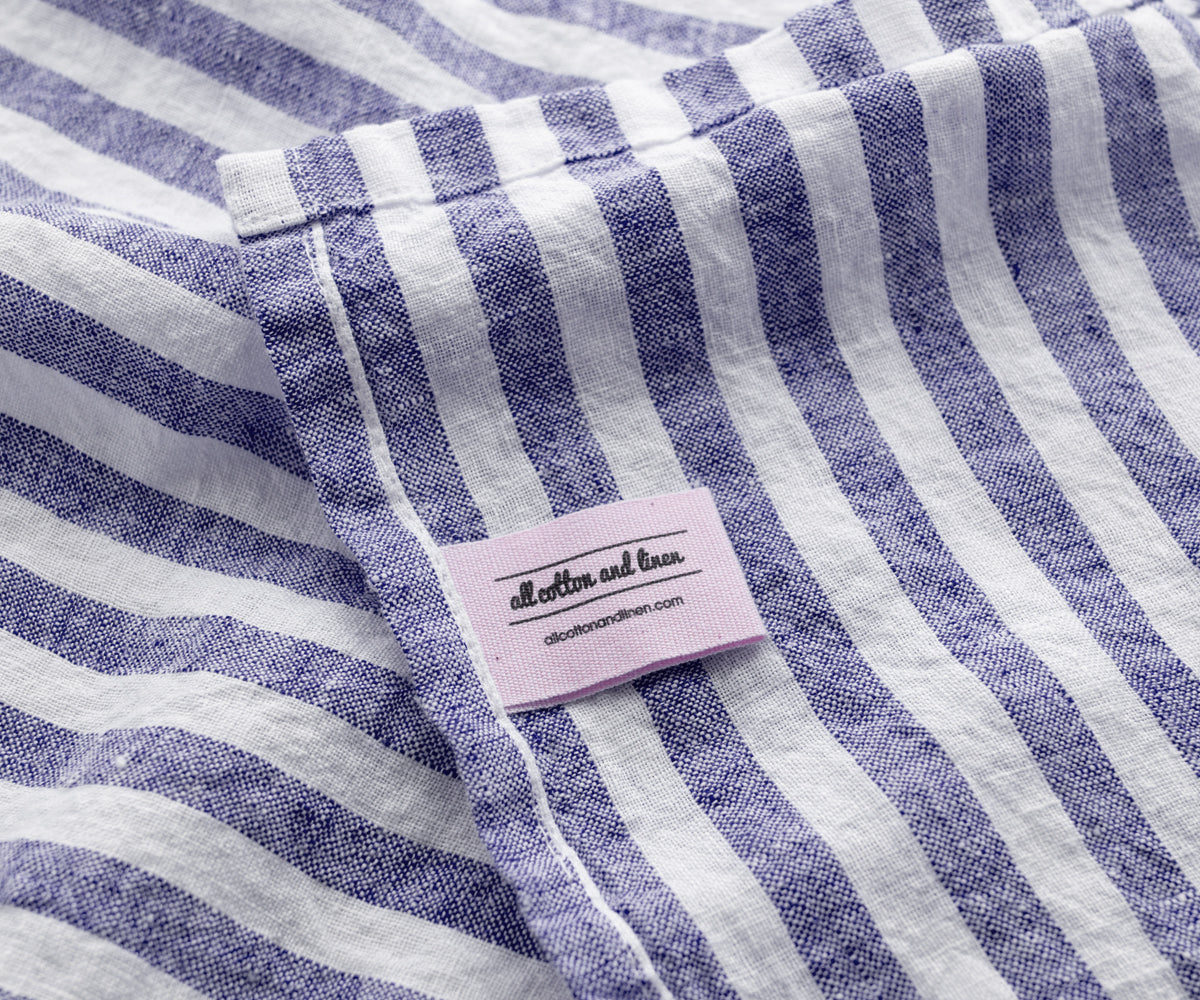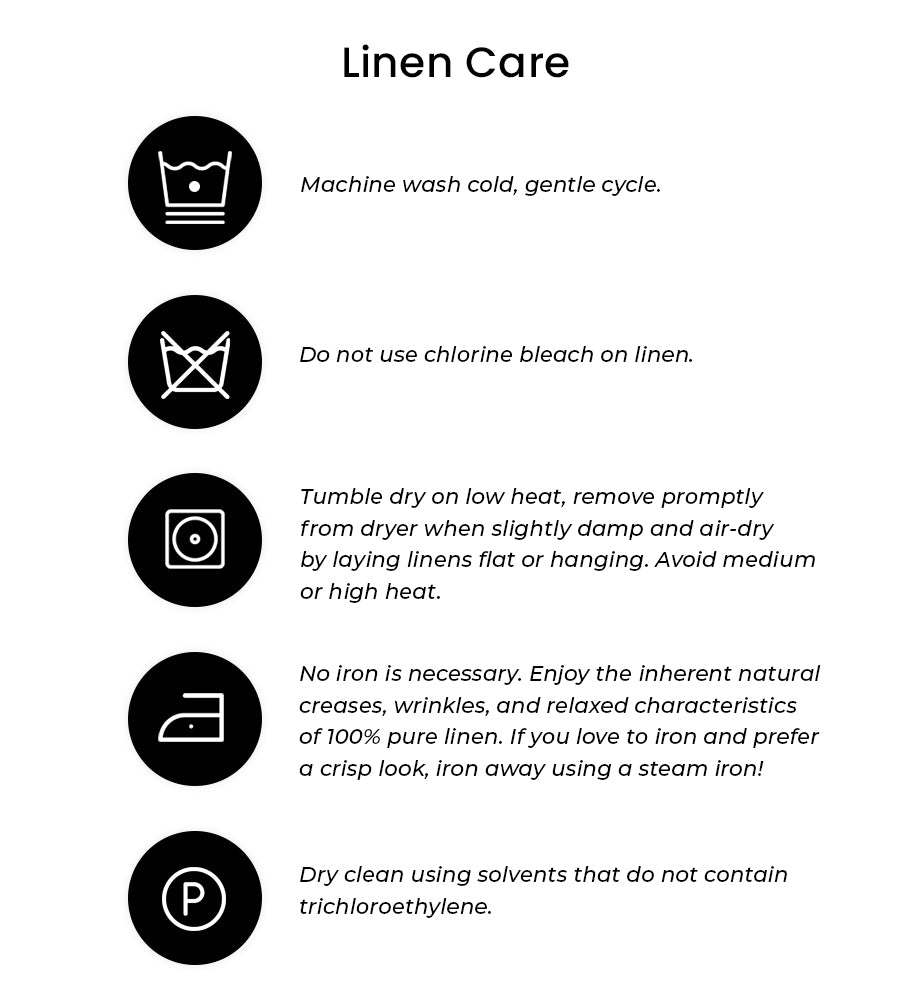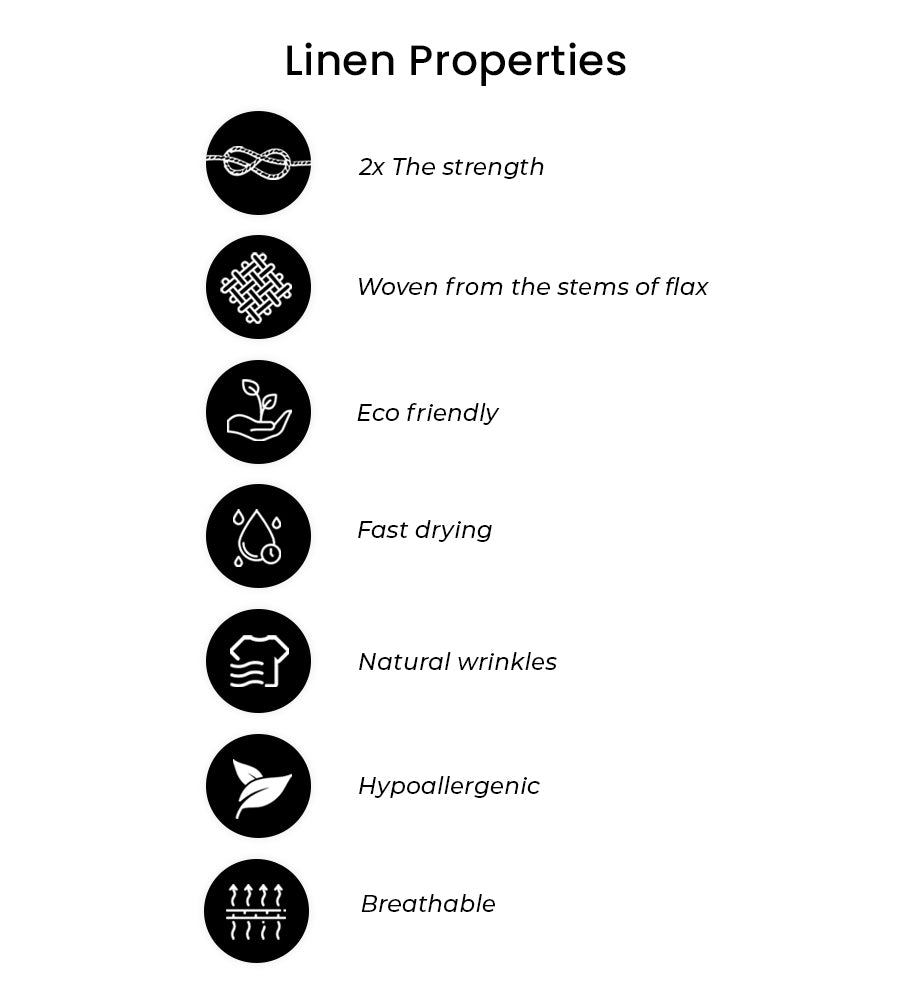
Multi-Purpose Kitchen Towels:
While the dish towels can effectively dry and clean, their versatility extends far beyond. They can serve as reliable hot pads, ensuring you can easily handle warm pots and pans. When a potholder goes missing, your kitchen towel becomes an efficient hand towels. Their absorbent nature makes them excellent for patting down freshly washed veggies or blotting excess oil from your favorite fried dishes.
Additionally, they act as a protective barrier, guarding your countertops from the heat of sizzling cookware. So, let's explore how to make the most of your cotton kitchen towels—they're tools and essential kitchen companions.

Understanding the Importance:
You set kitchen towels as the unsung hero of any culinary space, but if neglected, they can become a breeding ground for bacteria and unpleasant odors. This leads to an unsavory smell and poses a risk to the hygiene of your towels. Following these steps guarantees your kitchen and even white towels remain fresh, clean, and odor-free.

Tips and Tricks:
● Washing Dish Towels Regularly
To maintain the freshness of your kitchen towels, regular washing is paramount. Ideally, aim to wash them after every use. This practice removes food particles, stains, and odors that may have accumulated on kitchen dish towels. Opt for hot water and a high-quality detergent for a thorough cleansing. Do not use fabric softeners to increase absorbency.
● Separate from Other Laundry
Prevent cross-contamination by keeping your white hand towels separate from other laundry items. This practice mitigates the risk of transferring food particles, grease, and bacteria to your clothing. Washing your organic dish towels in a dedicated load guarantees maximum cleanliness.

● Proper Drying Techniques
Post-wash, it is crucial to ensure your dish towels dry properly. Damp or crumpled towels create an environment conducive to mold and mildew growth. Instead, shake them out and make the dish towel hanging up to air dry. If feasible, take advantage of natural disinfectant properties by allowing them to bask in sunlight.
● Pristine Storage
Once dry, stow your dish towels in a clean and dry location. Avoid areas prone to dampness and humidity, as they can foster bacteria and mold growth. Opt for a well-ventilated space, such as a kitchen drawer or cupboard, to maintain the freshness of your most absorbent dish towels.
● Knowing When to Replace
Regardless of meticulous care, there comes a time when replacing your dish towels becomes necessary. Observing diminished water absorption or detecting a lingering odor indicates that new towels are in order. Regular replacement guarantees that you always have clean and hygienic dish towels.
Related Videos or Readings:
- What Is Special About 100% Cotton Dish Cloths | Dish Cloths | kitchen towels | Kitchen Cloths by Towelogy
- Top 5 Best Dish Drying Towel | Best Dish Towels | Best Kitchen Towels - 2023 (Buying Guide) by Techstal
- Swedish Cellulose vs Homaxy Cotton Dish Cloth Comparison Best Selling Washing Dishes Cloths by Just A Dad Tips
- The Ultimate Guide to Kitchen Towels: Top 7 Best Kitchen Towels for Drying Dishes in 2024by Kitchen Needs
- Serious Eats - They might discuss kitchen essentials in articles or equipment reviews, potentially mentioning cotton dish towels.
- Allrecipes - They might have guides on kitchen setup or best practices, including recommendations for dish towels.
- Wirecutter - They might have buying guides or reviews specifically for kitchen towels, with a focus on cotton options.
- CNET - They could have articles on kitchen essentials or best dish towels, including reviews of cotton options.
- The Kitchn - They might have articles on kitchen organization or tips for keeping a clean kitchen, potentially mentioning cotton dish towels.








